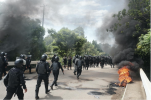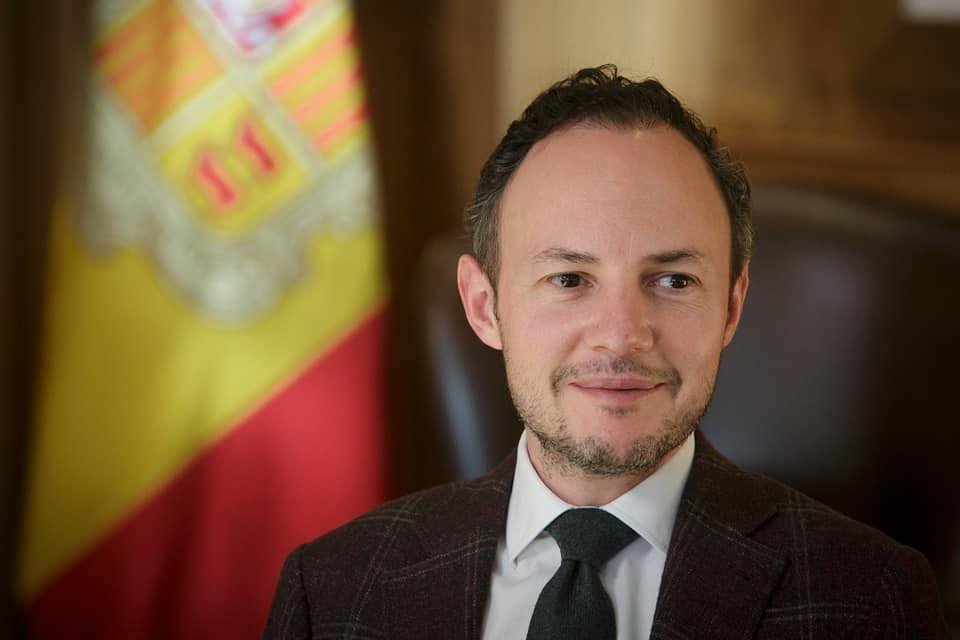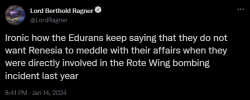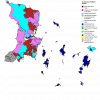CaesarBiggles
New Member
22.06.2023 18:59
Outlandsmastery on recent Agarad Bombing: Makes point for referendum, not against
Marley, in a press release, said that "this bombing is further proof that the international community needs to come together to put an end to this violence. The Agar people deserve a stable and secure future and a place in society, and hawkishness is not going to provide that for them." The presser further elaborated that Marley would encourage other nations to support the World Forum proposal to appoint agents to execute said referendum.
"Radical federalism is based upon democratic ideals," Marley said in the presser, "Our blue way of life here tells us that democracy is not only the best way to run society, but also for the economy. But for that to happen, first a people must have a government responsive to them," the Outlandsmaster said in justification for his support of this motion. The ministry holds that Wheelerism is the application of the democratic process to the workplace, in agreement (although not in the same way) with the Wheelerist party of Lathadu. Therefor, while the Noyonist faction of the civil war may have some ideological ties with the Workers Association, the faction which is chosen by the people of Agarad should be the one to lead it- regardless of the Jarader Force's ideological position.
However, Marley had this to say on the international backlash to the proposal: "Some of our allies- and other states who happen to be associated with the blue shade- seem to believe that democratic economics doesn't require a democratic society. Our comrades in Velorenkya, Ordrey, Lathadu, and to a certain extent, Gladomyr, had the opportunity to choose their way of life for themselves. Wheelerism or Noyonism foisted upon a people, rather than adopted organically, is not radical federalism- but simply power politics. Velorenkya seems to abhor 'international moneyism', but they have no problem, it seems, forcing their ideology on a people who do not want it."
"Let me be clear," Marley said to end the press conference, "I will support Agar workers in their endeavors to take their destiny into their own hands. But for that to happen, they must first decide for themselves."
Marley speaking at the press conference
Eduran diplomatic victory, despite chaotic committee meeting
The Eduran delegation to the World Forum is categorizing its involvement in the Committee on the Agarad Civil War, and the forwarding of the referendum proposal to the general voting body, as a success. While the Eduran delegation's motion to amend the proposal was not successful, it did vote in favor of sending the proposal as-is to the general World Forum. Sources from both the delegation and the Outlandsmastery have made statements to the effect that pushing this proposal through has allowed Edury to demonstrate that it is able to put pressure on international affairs.
Eduran diplomats will probably, in the Outlander's point of view, continue to attempt to exert that same pressure in the coming days. In order to emulate their recent victory, various ambassadors throughout Alutra are attending or hosting press conferences in their respective countries in order to gain support for the proposal in the WF, as well as gain signatories, as it is unlikely that the resolution will be unanimous, even if it passes.
Eduran foreign policy is in a strange place where, despite being vociferous in its attempt to join the Aarnieu Fraternity, it is also going up against the foreign policy of Ordrey, the Noyonist state which traditionally leads the blue-shade Alutran bloc.

The headquarters of the World Forum
Delegate Bert Smit recalled
Following accusations of racism against Salians, Myrs, Enquscan people, Martlanders, Valorenkians, Riyatans, and Renesians, Eduran delegate to the World Forum Bert Smit has been recalled, and a replacement sent to Grana."There's no HR, so you can't sue me," Smit said as he boarded his plane.

The plane Smit left on.
















